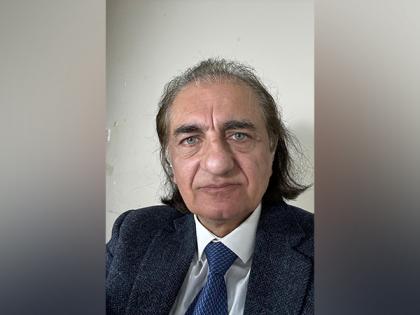Amjad Ayub Mirza exposes systemic persecution of religious minorities in Pakistan
By ANI | Updated: June 9, 2025 12:33 IST2025-06-09T12:25:18+5:302025-06-09T12:33:26+5:30
London [UK], June 9 : Amjad Ayub Mirza, a leading activist from Pakistan-occupied Jammu and Kashmir (PoJK), has delivered ...

Amjad Ayub Mirza exposes systemic persecution of religious minorities in Pakistan
London [UK], June 9 : Amjad Ayub Mirza, a leading activist from Pakistan-occupied Jammu and Kashmir (PoJK), has delivered a scathing analysis of the Voice of Minority in Pakistan's May 2025 report, which highlights the deteriorating situation of religious minorities in Pakistan, particularly Hindus, Christians, Sikhs, and Ahmadis, under the country's majoritarian framework.
Mirza accused Pakistan of cultivating a culture of impunity in which Muslims, protected by blasphemy laws, supposedly have a "licence to kill." Citing Section 295 of the Pakistan Penal Code, he emphasised how simple accusations of blasphemy can result in arrests, lynchings, or even capital punishment, as seen most infamously in the cases of Asiya Bibi and the assassinations of Punjab Governor Salman Taseer and Christian minister Shahbaz Bhatti.
According to the report, at least 43 cases of religious persecution occurred in May 2025 alone, including deliberate violence against Hindus in Sindh's Mirpur Khas and against Christian women in Lahore. Notably, six attacks on the Ahmadiyya community were reported in districts including Kasur, Sialkot, and Lahore, with several reportedly carried out by bar associations, Tehreek-e-Labbaik, and police officers.
Mirza described how young minority girls, some as young as 12, are abducted and forced to convert to Islam. He also quoted the Sindh Assembly, where MPA Faisal verified reports of Hindus being compelled to eat beef, which is profoundly repugnant to their religious views. These reported actions frequently coincide with religious festivals, such as Bakra Eid.
Beyond physical violence, minorities are systematically excluded from civil services, education, and political participation. Many are relegated to low-paying jobs like sanitation work and live in neglected neighbourhoods lacking basic utilities.
Temples, churches, and gurdwaras are frequently vandalised or illegally occupied, while media outlets ignore or suppress reports of festivals like Diwali or Christmas.
Mirza concluded that the persecution of minorities in Pakistan is not incidental, but embedded in the ideological foundation of the state. "Being a Christian or a Hindu in Pakistan is treated like a crime," he said.
Disclaimer: This post has been auto-published from an agency feed without any modifications to the text and has not been reviewed by an editor
Open in app